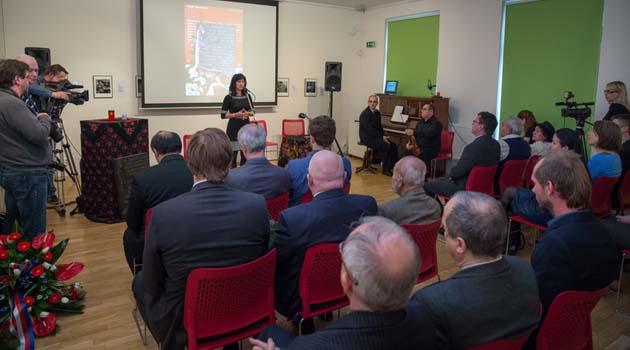Czech Republic: Museum of Romani Culture holds commemorative ceremony on anniversary of genocide of Bohemian and Moravian Roma

A commemorative ceremony marking the first mass transport of Romani men, women and children from the Protectorate of Bohemia and Moravia to the Auschwitz concentration camp was held last week in Brno. The trains to Auschwitz set out on 7 March 1943 from the local municipal run animal slaughterhouses.
Most of the people deported did not live to see the end of the Second World War. The ceremony commemorated the 73rd anniversary of these tragic events.
The ceremony, which took place at the Museum of Romani Culture, was attended by members of the Czech Government Inter-ministerial Commission for Roma Community Affairs, which is part of the agenda of the Czech Minister for Human Rights, Equal Opportunities and Legislation, Jiří Dienstbier. Guests were welcomed by the director of the Museum of Romani Culture, Jana Horváthová.
Dienstbier excused himself from attending the event, citing work reasons, and was represented instead by David Beňák, the head of the commission, and by the Deputy Human Rights Minister, and by the Head of Department for the Office of the Government Council for Roma Minority Affairs, Martin Martínek. "We must see to it that, in our contemporary society, the weakest and most vulnerable will no longer be marginalized – transported to the outskirts of society," Beňák said in his speech.
In addition to speeches by the Government bureaucrats in attendance the event included a musical performance, a presentation by historian Michal Schuster, and a reading from the script of a Rike Reiniger play.
The event was also attended by the president of the Jewish Community in Brno, Jáchym Kanárek, and by Vice-Mayor Matěj Hollan. The genocide of the Bohemian and Moravian Roma is referred to as the "baro murdaripen" or the "great murdering" in the Romani language.
Internationally the Romani Holocaust is also referred to as the PORRAJMOS. By the end of the Second World War, less than 600 Bohemian and Moravian Roma remained alive out of what was originally a community of more than 5 000.